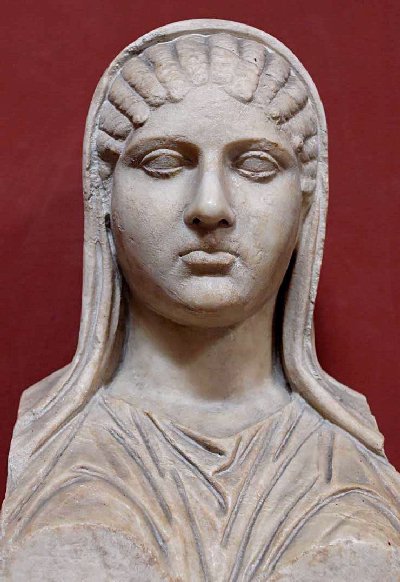 |
||||
|
Feminist Philosophy
Unveiling the Historical Evolution of Feminist Philosophy: Challenging the Status QuoFeminist philosophy is a dynamic and diverse field of inquiry that seeks to analyze and address the social, political, and cultural conditions that perpetuate gender inequality. This branch of philosophy emerged as a response to the exclusion and marginalization of women's voices within traditional philosophical discourse. Over the centuries, feminist philosophers have engaged in critical examinations of gender norms, power structures, and social injustices, shaping our understanding of gender and paving the way for social progress. In this article, we delve into the rich history of feminist philosophy, exploring key thinkers and pivotal movements that have contributed to its development. Ancient Roots and Early Challenges (5th century BCE - 17th century CE): The history of feminist philosophy can be traced back to ancient Greece, where courageous women such as Diotima and Hypatia offered unique perspectives on love, knowledge, and virtue. However, it was during the Enlightenment that feminist thought began to gain traction, as philosophers like Mary Astell, Olympe de Gouges, and Mary Wollstonecraft challenged prevailing notions of gender inequality. Wollstonecraft's seminal work, "A Vindication of the Rights of Woman" (1792), called for equal educational opportunities and questioned society's expectations of women. Waves of Feminism and Their Philosophical Impact (19th - 20th century): The first wave of feminism emerged in the 19th and early 20th centuries, primarily focused on women's suffrage and legal rights. Figures such as Harriet Taylor Mill, John Stuart Mill, and Elizabeth Cady Stanton contributed to this movement, advocating for women's rights through philosophical and political discourse. Notably, the suffragette movement in the late 19th and early 20th centuries fought tirelessly for women's right to vote. The second wave of feminism emerged in the mid-20th century, challenging deeply ingrained gender norms and addressing issues such as reproductive rights, workplace discrimination, and gender roles. Influential feminist philosophers of this era included Simone de Beauvoir, Betty Friedan, and Judith Butler. De Beauvoir's groundbreaking work, "The Second Sex" (1949), critically analyzed the social construction of gender and argued for women's liberation from traditional roles and expectations. The third wave of feminism emerged in the late 20th century and continues today, emphasizing intersectionality and the recognition of multiple forms of oppression based on race, class, sexuality, and other identities. Feminist philosophers like bell hooks, Kimberlé Crenshaw, and Martha Nussbaum have played significant roles in this wave, expanding the scope of feminist inquiry to encompass a more inclusive and diverse range of experiences. Key Concepts and Contributions: Feminist philosophy has introduced numerous key concepts and theoretical frameworks that have shaped the field and influenced broader discourse. Intersectionality, coined by Crenshaw, recognizes the interconnected nature of social categories and the compounding effects of multiple forms of oppression. Queer theory, developed by scholars like Butler, challenges binary understandings of gender and sexuality, advocating for fluidity and inclusivity. Care ethics, developed by Nel Noddings and others, focuses on relational and empathetic approaches to morality, highlighting the importance of care and interconnectedness. Contemporary Developments and Future Directions: Feminist philosophy continues to evolve and respond to emerging challenges in contemporary society. Recent developments include ecofeminism, which examines the interconnections between feminism and environmentalism, and transnational feminism, which analyzes global gender inequalities and the impact of colonization. Additionally, online feminist communities and digital activism have become influential platforms for feminist discourse and mobilization. Looking to the future, feminist philosophy will undoubtedly continue to engage with pressing issues such as reproductive justice, sexual violence, economic disparities, and representation in various spheres. The field's commitment to inclusivity, social justice, and the empowerment of marginalized voices ensures its ongoing relevance and transformative potential. Conclusion: The history of feminist philosophy is a testament to the tireless efforts of thinkers, activists, and scholars who have challenged patriarchal norms, fought for equality, and reshaped our understanding of gender and power dynamics. From the ancient world to the present day, feminist philosophy has continuously pushed the boundaries of knowledge, challenging the status quo and offering alternative perspectives. As we move forward, feminist philosophy remains a vital force in shaping a more equitable and just society for all.
Feminist Philosophers and MoreFor as long as there has been philosophy there has been feminist philosophers standing up for women's rights and using logic and reason to push their cause.
Feminist History of Philosophy
|
|
|||
|
|
||||
|
|
||||
 |
Health Matters - Historical Feminism - International Feminism - Lesbian Feminism - Male Feminism - Modern Feminism - Musical Feminism Philosophy of Feminism - Postfeminism - Pro-Choice Feminism - Quotes by Feminists - Religion and Feminism - Sports and Feminism |
 |
||
